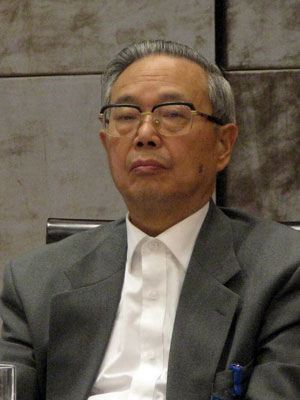|

|
|
Cai Fangbo is a former ambassador to France and Switzerland. |
Looking back on the Sino-France relationship, Cai Fangbo, a former ambassador to France, describes "the joint statement of the comprehensive partnership between China and France" in May 1997, as bringing Sino-French bilateral relations to a new stage of development, and also having a major impact on the international community.
France took the lead in developing relations with China, says Cai. "However, during the process of drafting a joint statement and preparing for President Jacques Chirac's visit to China, we encountered many problems, and some appeared insurmountable. But in the spirit of achieving real and significant progress, these difficulties were eventually overcome one by one."
On November 18, 1996, when both sides were preparing Chirac's trip to China, France was also proposing to sell weapons (the northwest wind missile) to Taiwan, which created serious turbulence in the Sino-France relationship. Cai Fangbo, as Ambassador to France, was ordered to make formal representations to the French side.
"I told the French Ministry of Foreign Affairs that this policy represented an affront to China's sovereignty and to its long-standing objective of Chinese territorial reunification, and also went against the basic principle guiding diplomatic relations between the two countries. The Chinese government resolutely opposed such a policy," says Cai. "I told France frankly and clearly that China would react strongly if weapons were sold to Taiwan – if the proposal was supposed to be a means of applying pressure to China, it would have the opposite effect to that intended."
Following Cai's negotiations, France abandoned the idea of selling arms to Taiwan. Overcoming this obstacle brought the two countries closer to success.
However, there followed a new problem: Chirac wanted China to buy more aircraft. He told Cai that he would delay his visit unless China increased its order from 10 to 50.
Cai responded immediately. He reported the information to the then Premier Li Peng. "At the airport, I informed Chirac's Foreign Affairs Adviser on the phone. Later, in session, China decided to purchase 30 aircraft. The second problem had been resolved." In due course, President Jacques Chirac paid a visit to China as the head of a 400-member delegation.
During Chirac's visit to China, the heads of the two countries signed a historic joint statement and a contract for the purchase of 40 aircraft. A number of economic and technology cooperation agreements were also signed and France promised to support China in a number of areas, including nuclear power and agriculture. This represented an enormous step forward for economic and trade relations between the two countries.
(China.org.cn by Jessica Zhang, December 10, 2008)